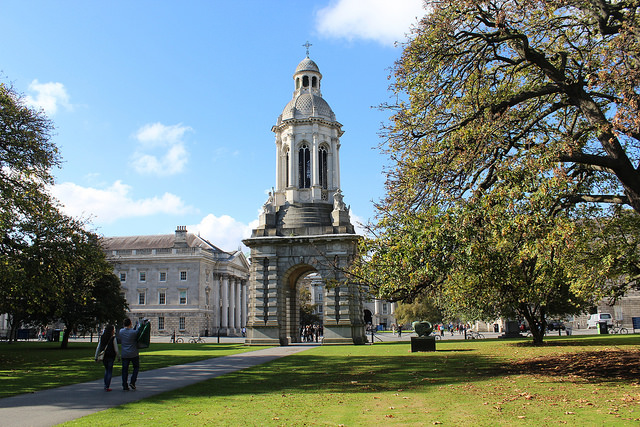Trinity College Dublin Students’ Union (TCDSU) has submitted a proposal for a student centre to be included in College’s new Estates Strategy, which is in the process of being developed by College.
The proposal was put forward by TCDSU President, Kieran McNulty, at a meeting with consulting firm, Turnberry Consulting, who are developing Trinity’s Estates Strategy. The proposal includes offices for TCDSU and Graduate Students’ Union (GSU) offices, a common room space and a number of break-out rooms for students. McNulty also proposed a 150-person venue and staging area, as well as a retail unit within the new centre.
College is currently considering a number of both on and off-campus locations for the new student centre. Trinity is one of the only universities in Ireland that does not have a student centre.
Speaking to The University Times , McNulty said that Trinity was engaging with the process and expressed his own preference for an on-campus student centre. Once a space for a new centre has been identified, Estates and Facilities have considered the proposal and projected costs have been made, students will be asked to vote on the proposed centre. “There are spaces that we could look at, and we’ve identified what we need. It’s kind of a fingers-crossed sort of scenario, and hopefully we can go through a referendum within the year”, McNulty said.
“Nothing is going to be agreed without going to the students for referendum first”, he added.
The new centre will have to be paid for by an as-yet undecided increase in the student levy. McNulty expressed his hope that only students who will be in college once the centre is built will have to pay for it: “My hope would be that no student would have to pay for it if they’re not going to use it.”
The new estates strategy was a recommendation of a report, undertaken by Turnberry Consulting, that found that Trinity lags behind other universities when it comes to student spaces and that Trinity’s campus is not presented to its “maximum potential”. Among other concerns, revealed by The University Times in April, the report also found that the College’s use of lecture and reflective spaces is “sub-optimal”.
In June, a plan for implementing the new estates strategy was submitted to the College Board, including proposals to analyse the need for library space, residential units and sports and leisure facilities. Written by the Bursar and Director of Strategic Development, Veronica Campbell, the plan, obtained by The University Times , outlines the key areas addressed over the next 12 to 24 months by College in order to “achieve immediate and radical change to overcome the existing dire circumstances”.
The first of the specific areas outlined was a comprehensive collection of data, which needs to be undertaken over the next six months, regarding Trinity’s current use of estates and facilities.
The plan includes assessing and analysing the current use of the Trinity campus and where space for new facilities may be installed. The plan also recommended a survey of all current Trinity staff and students as well as those who chose to work or study elsewhere in order to note “their views on infrastructural issues”.
Another exercise within the plan laid out was a “forecast of need”, which aims to identify what facilities will be required in the future by the university. The potential for growth over the next 10 years will be considered, as will the future impact of the Trinity Education Project.
The document also calls on College to consider the development of spaces that Trinity needs to remain “competitive”, including social learning spaces, residential units and sports facilities. The implementation plan will also consider the requirements for visitor and commercial space. Regent House is currently undergoing refurbishment so it can be used as a visitor centre during the summer months, and the removal of the attendant’s kiosk and the installation of new visual technologies at the Nassau St entrance are all attempts to improve the visitor experience in Trinity.
College plans to have the implementation strategy complete by June 2017 before going to Board for a final report in June the following year, at which point the implementation of the estates strategy will begin.







